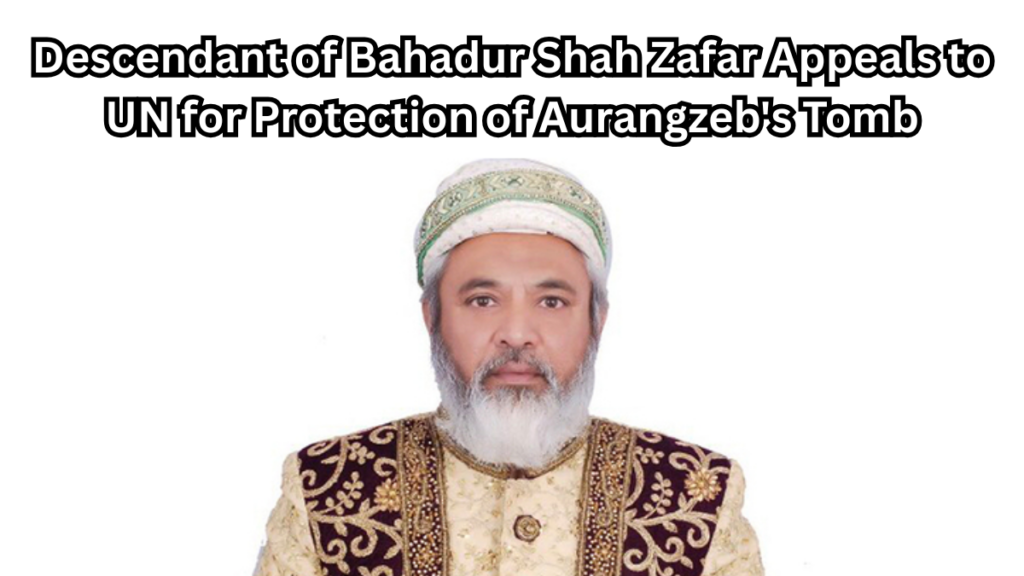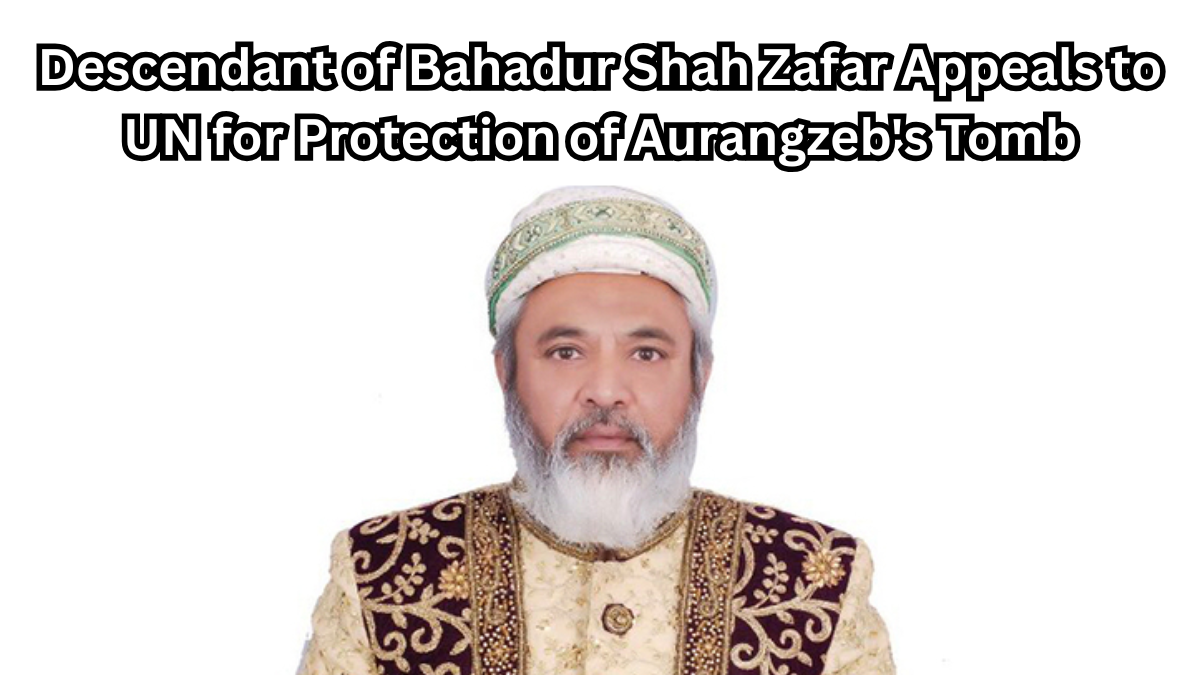A man who identifies as a direct descendant of the last Mughal emperor, Bahadur Shah Zafar, has reached out to the United Nations, urging them to intervene in the ongoing controversy surrounding the tomb of Emperor Aurangzeb in Maharashtra.

Who is Yakub Habeebuddin Tucy?
Yakub Habeebuddin Tucy, who has written a formal appeal to UN Secretary-General Antonio Guterres, claims to be the Mutawalli (caretaker) of the Waqf property housing the tomb. He has positioned himself as a historical custodian with strong personal and ancestral ties to the Mughal legacy.
Why the Concern Now?
Tucy’s plea comes on the heels of recent unrest. Here’s a quick overview:
-
Last Month: Protests and violence erupted in Nagpur during a rally calling for the removal of Aurangzeb’s tomb.
-
Location of the Tomb: Kuldabad, located in Chhatrapati Sambhajinagar district (formerly Aurangabad).
-
Reason for Controversy: The tomb has become a flashpoint due to rising tensions over historical interpretation and Aurangzeb’s legacy.
Protection Under Indian Law
According to Tucy, the tomb is not just a historical site but a protected monument, and here’s why it matters:
| Legal Protection | Details |
|---|---|
| National Status | Declared a “Monument of National Importance” |
| Governing Law | Protected under the Ancient Monuments and Archaeological Sites and Remains Act, 1958 |
| Legal Restrictions | No unauthorized construction, destruction, or modification allowed |
| Legal Consequence for Violation | Any such acts are punishable under Indian law |
Tucy’s Appeal to the United Nations
In his letter, Tucy made a passionate plea citing not just Indian laws, but also international conventions. He argued that protecting cultural monuments like Aurangzeb’s tomb isn’t just a national obligation—it’s a global responsibility.
Tucy’s Key Concerns:
-
Misinformation: He highlighted how films, news channels, and social media are distorting historical facts.
-
Public Manipulation: This misinformation, he says, has led to hate campaigns and aggressive acts such as burning effigies.
-
Need for Security: He requested deployment of security forces at the site to prevent vandalism and desecration.
-
International Law: He cited India’s commitment to the UNESCO World Heritage Convention (1972) which obligates the country to protect cultural heritage for future generations.
Final Request to the UN
Tucy urged the UN Secretary-General to:
-
Take immediate cognizance of the situation.
-
Direct the Indian Government and the Archaeological Survey of India (ASI) to:
-
Ensure full legal protection for the tomb.
-
Provide adequate security.
-
Preserve the site in accordance with both national and international laws.
-
FAQs
1. Why is Aurangzeb’s tomb controversial?
Aurangzeb, a Mughal emperor, has a polarizing legacy. Some groups view his reign as oppressive, leading to calls for the removal of his tomb. This has sparked protests and clashes in Maharashtra.
2. Is the tomb of Aurangzeb protected by Indian law?
Yes, it is declared a “Monument of National Importance” and is protected under the Ancient Monuments and Archaeological Sites and Remains Act, 1958. Any unauthorized activity around it is considered illegal.
3. Who is Yakub Habeebuddin Tucy?
Tucy claims to be a descendant of Bahadur Shah Zafar, the last Mughal emperor. He also identifies as the Mutawalli (caretaker) of the Waqf property housing Aurangzeb’s tomb.
4. What role can the United Nations play in this issue?
While the UN cannot directly intervene in India’s internal matters, it can exert diplomatic pressure or offer advisory opinions—especially if international heritage agreements like the UNESCO Convention are involved.
Click here to learn more
Sachin is a dedicated writer specializing in education, career, and recruitment topics, delivering clear and actionable insights to empower readers.
